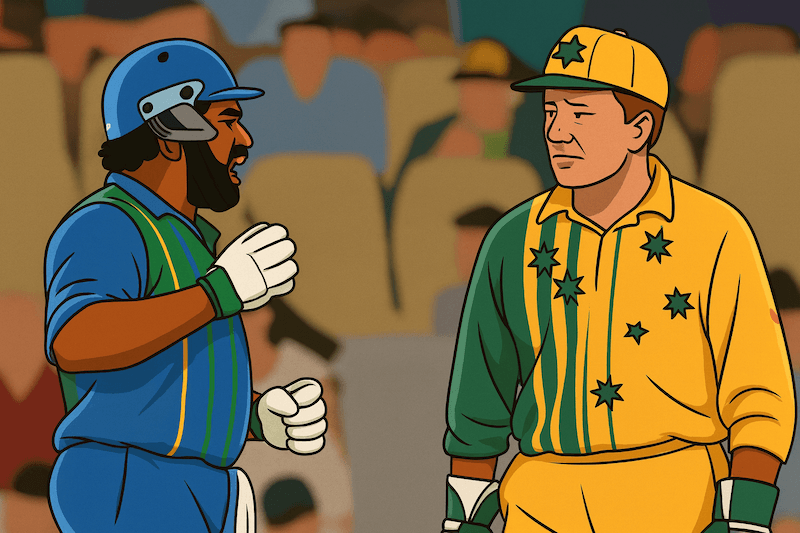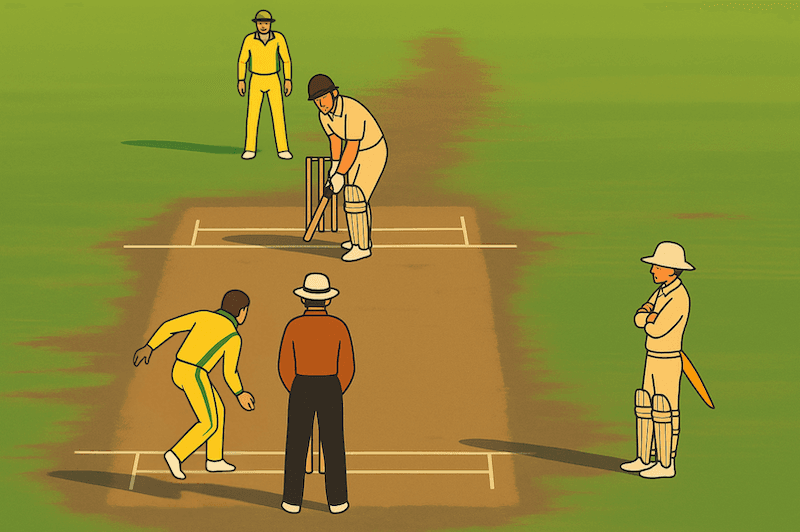
On this day in 1994, England's Test captain Mike Atherton found himself at the centre of a controversy that would follow him for the rest of his career. Caught on camera with dirt in his pocket during a Test match at Lord's, Atherton was accused of ball tampering and later fined by the England cricket authorities.
The match itself carried historical weight — it marked South Africa's return to Test cricket in England after 29 years of isolation due to apartheid. But instead of the cricket alone making headlines, it was Atherton's actions that dominated the story.
The Incident
- South Africa batted first and scored 357 runs, putting early pressure on the home side. England, in reply, collapsed to just 180 all out.
- Frustration set in as senior players complained about the difference in how the ball behaved. Veteran Graham Gooch reportedly said the South African ball was moving a lot, while England's was doing “f*** all.”
- In that moment, Atherton decided to take matters into his own hands. He picked up dirt from a used pitch area, slipped it into his pocket, and later applied it to the ball. The aim was simple: rough up one side to encourage reverse swing, a practice considered illegal ball tampering under the laws of the game.
- Cameras at Lord's caught the act clearly. When questioned by match referee Peter Burge, Atherton initially denied any wrongdoing, claiming the dirt was only used to dry his sweaty hands. But as the evidence mounted, it became clear that the dirt was applied to change the condition of the ball. Atherton later admitted to the offence.
The Aftermath
- Atherton was fined a total of £2,000 by the England cricket authorities:
- £1,000 for ball tampering.
- £1,000 for misleading the match referee.
- The scandal generated enormous media attention in England and abroad. Many called for Atherton to resign as captain, arguing that he had betrayed the values of the game. However, he was not removed from the role and continued to lead the team.
- Adding insult to injury, England were completely outplayed on the field. South Africa won the Test by a massive 356 runs, underlining their triumphant return to the international stage.
Legacy and Impact
- The "Dirt in Pocket" incident remains one of the most infamous moments in Mike Atherton's career. While he went on to captain England for several years and became known as a gritty opening batsman, this controversy left a permanent mark on his reputation.
- Ironically, just 3 years later, Atherton was honoured with the OBE (Officer of the Order of the British Empire) for his services to cricket. It showed how time and performance on the field helped him rebuild trust, though the dirt-in-pocket affair was never forgotten.
- The episode also highlighted how technology had changed cricket forever. With cameras covering every move, players were now under constant scrutiny, and even small acts could quickly turn into major scandals.
Explore More Stories

2005 Ashes: The Summer Cricket Became Theatre
The 2005 Ashes was more than just a cricket series. It was a rollercoaster of emotion, courage, and unforgettable moments that brought Test cricket back to life. England’s long wait finally ended, and the world watched history unfold.

What Happened to Zimbabwe Cricket? The Rise, Fall, and Fight for Survival
Once they challenged the world’s best, now they struggle to stay afloat. Zimbabwe cricket’s journey from the glory of 1999 to years of chaos and heartbreak is a story of politics, power, and lost pride, and of a nation still dreaming of revival.
Final Note
The "Dirt in Pocket" scandal of 1994 showed how quickly a captain's judgment could come under fire. What began as an attempt to gain an advantage became a national controversy that questioned Atherton's honesty and leadership. While he survived the storm and restored much of his reputation, the incident remains a reminder that in cricket, even the smallest actions can have the biggest consequences.














